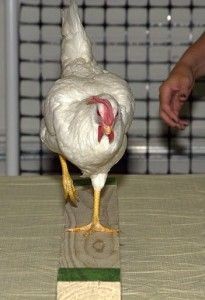Instincts, or innate behaviors, are actions animals perform without any prior learning or experience. These behaviors are crucial for survival and are often triggered by specific stimuli in the environment. Understanding these inherent actions provides valuable insights into animal behavior and adaptation. This article delves into the fascinating world of instinctive behaviors, exploring their significance and providing examples in various species.
What is a Behavior an Animal Doesn’t Need to Learn?
A behavior that an animal doesn’t need to learn is called an instinct or innate behavior. These are pre-programmed actions, genetically hardwired into the animal’s nervous system. They are performed automatically in response to specific environmental cues, without any prior training or observation. Instincts are essential for an animal’s survival, enabling them to find food, avoid predators, and reproduce successfully.
Examples of Instinctive Behaviors
The animal kingdom abounds with fascinating examples of instinctive behaviors:
- Sea Turtle Hatchlings: Upon emerging from their nests, baby sea turtles instinctively head towards the ocean, guided by the bright horizon. This behavior ensures their survival, as the ocean provides food and protection.
- Bird Migration: Many bird species undertake long, arduous migrations to breeding grounds or warmer climates. This complex behavior, driven by instinct, is triggered by changes in day length and temperature.
- Spider Web Building: Spiders instinctively construct intricate webs for catching prey. The complex patterns and designs of these webs are not learned but are genetically determined.
- Honeybee Waggle Dance: Honeybees perform a complex “waggle dance” to communicate the location of food sources to other bees in the hive. This intricate communication system is an innate behavior, essential for the colony’s survival.
Learning vs. Instinct: A Complex Interplay
While instincts are pre-programmed, learning can modify and refine these behaviors. Animals can learn to adapt their instinctive responses based on experience, leading to more efficient and successful behaviors. For example, a predator might instinctively chase prey, but through learning, it can refine its hunting techniques to become more effective. Even complex learned behaviors often have an instinctive component. For instance, a bird’s song might be learned, but the underlying urge to sing is instinctive.
The Importance of Instinctive Behaviors
Instinctive behaviors are vital for animal survival and adaptation. They provide a foundation for essential life functions, allowing animals to respond quickly and appropriately to their environment without the need for prior learning. These innate actions ensure the continuation of species by enabling animals to find food, avoid danger, and reproduce. Understanding these behaviors is crucial for understanding the complexities of the natural world. Further research into instinctive behaviors continues to shed light on the intricate relationship between genetics, behavior, and evolution.
